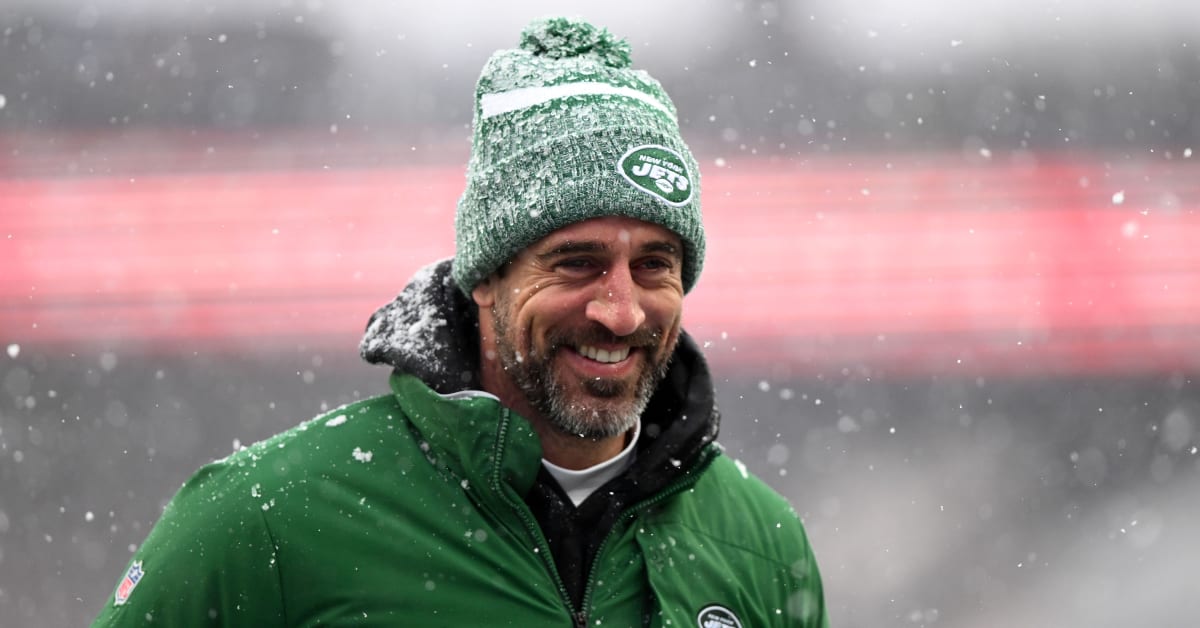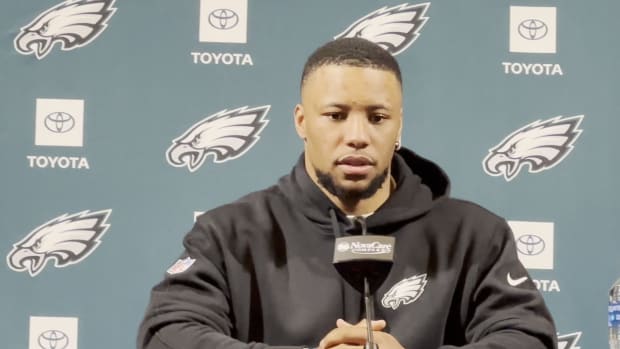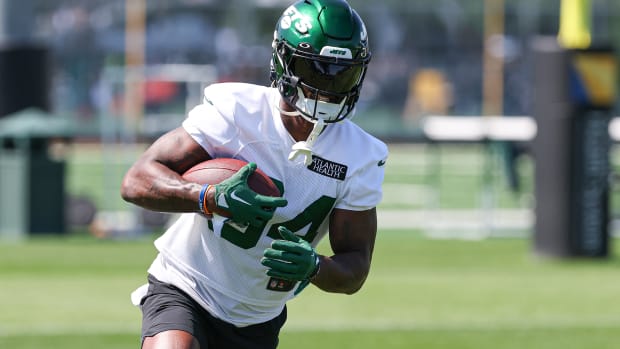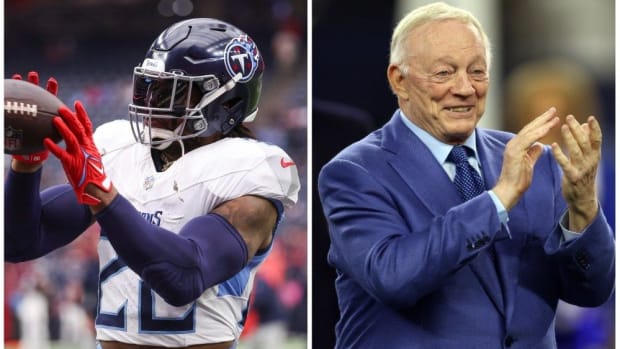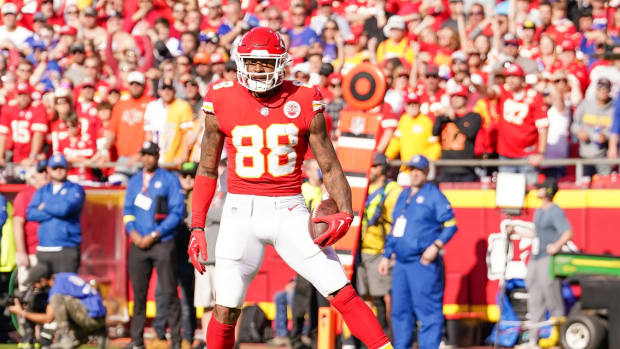It’s Time to Let Go of the Aaron Rodgers–Pat McAfee Algorithm
We’ve spent a lot of time over the last few weeks questioning the intelligence of New York Jets quarterback Aaron Rodgers without first questioning our own.
I prepared the writing of this column before receiving a synopsis of what the Jets quarterback said on The Pat McAfee Show on Tuesday, not because I have any particular objection to the show, but because I feel like I’ve seen the episode before. No offense to McAfee, or his talents as a carnival barker and producer of engaging television, but I grew up watching professional wrestling and now work in a medium where, once a week, I rank the nebulous concept of “power” in the NFL and can see the difference in reaction and engagement when one popular fan base is either snubbed or praised. I lived as a sentient human being from 2016 to ’20; I’ve watched cable news before major coastal hurricanes; and, as a dad prone to embarrassing his kids, I understand the very basic concepts of how to get a rise out of someone.
Rodgers is indeed free to say whatever he wants about whatever he wants, and I’m happy we live in a country where this is true. I, too, am afforded that right and I don’t think it’s nearly controversial to suggest that most of the drama surrounding Rodgers’s appearances and the show in general are sloppily manufactured. Just look at the last week or so. This, to me, is where Rodgers shows the one place he does have some kind of cognitive superiority over the rest of us. He traps us in a cycle that leads to the inevitable conclusion that we will watch what he has to say next. Some of us are unwittingly stuck in the Rodgers algorithm.

Rodgers has been making headlines off the field for the past few years.
Brian Fluharty/USA TODAY Sports
Rodgers made what we’re referring to as a “joke” about a late-night talk-show host who is clearly on the opposite side of the ideological spectrum as he is. The joke was delivered inside the trojan horse of a highly controversial hot-button issue. The network upon which it aired apologized, as did McAfee himself. McAfee then criticized a network executive on the air for allegedly leaking meager ratings. The late-night talk-show host criticized Rodgers, who then—despite having ample opportunity to clean up the preplanned mess, including at an end-of-season press conference where he teased his appearance on McAfee’s show—chose to say nothing and let the tension build. Had Rodgers really cared about this, he could have posted something on social media, mentioned it in his press conference or called a reporter who hasn’t lost his number. There were stories about Rodgers’s comments, his lack of an apology and the fact that someone else had to apologize. There were stories about the television executive and ratings and more thought pieces on Rodgers himself, and what kind of person he might be morphing into.
How is this any different from, say, Skip Bayless criticizing the mental health of the Dallas Cowboys’ quarterback, or Chris Broussard using a wholly offensive and inappropriate term to describe an NBA player? We followed the supposed in-house drama that came after just as religiously as we first lapped up the idiotic comments. Don’t be naive enough to think the people in charge didn’t notice.
Bayless won. Shannon Sharpe, who was comfortable towing his boat behind Bayless and parlayed that into a successful second life as a sort of provocateur and general chattering head, won. Broussard, who remains employed, won. They were able to find a soft spot, jab at it and hook our attention through the life of the controversy.
Rodgers seems to have a buckshot-style approach, where he sprays a projectile and takes in what hits. Just wait until the run-up of the 2024 election. This is ESPN’s way of nipping hold of the subculture Rodgers claims to represent—even though, if the quarterback genuinely cared about the power of the pharmaceutical industry, for example, or the reach of the government, he has enough money and a large enough platform to fight those perceived evils legitimately.
Rodgers was not removed from his post. McAfee’s show was not canceled. The ESPN executive he criticized and accused of leaking bad ratings numbers was not reprimanded or reassigned. It’s all vertical integration. It’s complementary programming.
And as long as you go into it knowing as much, that’s great. As long as you aren’t afraid that the professional wrestlers aren’t actually getting hurt, as long as you don’t allow it to hurt you, McAfee is simply a choice of entertainment that pleases a certain set of synapses and turns off another. The league Rodgers plays in fostered this kind of approach. The NFL ceased to become primarily a sport years ago, with all of the ancillary controversies driving the bus. We write about officiating mistakes and the lack of an oversight process to fix those mistakes and the ramifications of that lack of oversight, all to the joy of the people who can’t believe that we haven’t figured it out yet.
It doesn’t matter. It’s not serious. None of it. We’re all dupes. Marks. We’re all open wallets and glaring eyeballs. You don’t need to turn it off and read a book instead (although I have some recommendations if that’s a life path that interests you), but you do need to stop allowing any of these human beings to occupy more space in your head than is necessary.
































